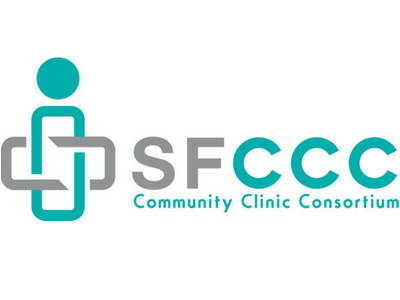NHC SF Member Blog: On Self-Sufficiency and the Challenges of Healthy Eating
NHC SF Americorps Member, Wesley Ho, gives insight into why healthy eating is difficult for those experiencing poverty.
During my service term, I’ve been honing my skills in artisan bread baking, in hopes that I can one day emulate the quality of great Bay Area bakeries like Tartine and Acme. Admittedly, the quest for baking nirvana has been rife with pitfalls: my home is perpetually cold, my fridge only has space to ferment one loaf at a time, and I only have one suitable vessel to bake in, an enameled dutch oven that was gifted to me by a friend. Nevertheless, I’m determined to meet my goal of self-sufficiency which, in the current pandemic, has become increasingly valuable.
I began cooking regularly after moving out of the dorms while at UCLA. Living in Los Angeles during the boom of food delivery services, there was a lot of quality food that was easily accessible. An In-N-Out was situated literally across from campus, the #1 ranked ramen shop in Los Angeles was minutes away, and various ethnic enclaves dotted the metropolis sharing cuisines from the motherland. However, with burgeoning student loans and no job, I submitted to frugality. I didn’t want to adhere to the trope of the college student subsisting on instant noodles, Hot Pockets, and the occasional splurge on Domino’s. Instead, I reveled in the challenge of self-sufficiency. From spending hours simmering my own pasta sauces to rolling and cutting my own gnocchi, I found my health and finances in a better place.
In my current position, I help our patients select nutritious foods from an assortment laid out in HealthRIGHT 360’s weekly food pharmacy. As a federally qualified health center, HealthRIGHT 360 is committed to serving folks regardless of their ability to pay. The majority of our patients reside around the federal poverty line, and many are at risk for or are already experiencing homelessness. For a community continually bearing risks for chronic illness, accessibility to nutritious foods is an imperative.
It was a strange thing to hear when patients turned down food for the first time. I would offer bags of dried beans, cartons of eggs, and heaps of brussel sprouts, but there was always someone to refuse them. I quickly learned about the impact of living situations on the ability for patients to feed themselves. For those lucky enough to be in a single room occupancy, they might have a small fridge or a microwave. For those staying in shelters or residential treatment programs, they might not be able to access any cooking appliances or even bring back food. The team at HealthRIGHT 360 believes that living a healthy life is a right. In accordance with that mantra, feeding oneself in a healthy manner should also be a right, but as it stands, self-sufficient healthy eating is demonstrably a privilege. Without the means to store perishable food or cook, a jar of Jif peanut butter might be the best bet for maximizing calories per dollar at the cost of an imbalanced nutrient profile.
Poverty puts our patients in a seemingly inescapable hole of unhealthy eating and chronic illness. Food pharmacies have been a great advancement towards alleviating the burden of poverty for several of our patients, and we see them return week after week with appreciation for providing access to healthy foods. Serving at HealthRIGHT 360’s food pharmacy has illuminated the privileges I enjoy in cooking and has heightened my gratitude for healthy living and eating. But above all, I’m grateful to serve alongside those who continue to challenge inequality so our patients can live and eat healthily.



